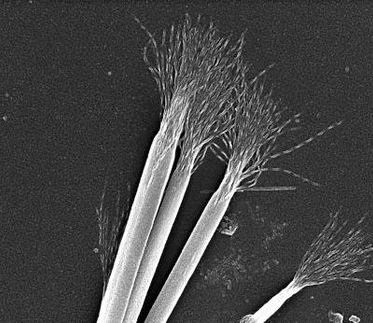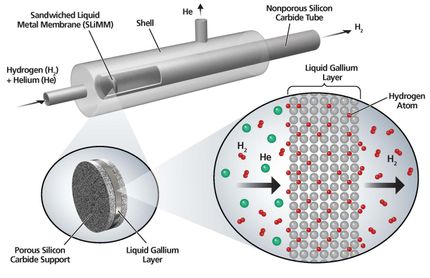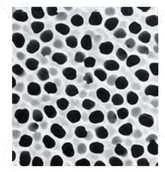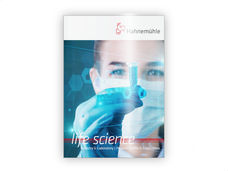University of Minnesota researchers discover breakthrough method for chemical separations
New process could greatly reduce energy used in the production of biofuels
A team of researchers, led by chemical engineering and materials science professor Michael Tsapatsis in the University of Minnesota's Institute of Technology, have developed a more energy-efficient method of chemical separations that could revolutionize processes in the petrochemical and biofuels industries. The new discovery is published in the July 31 issue of Science, a leading journal of scientific research published by the American Association for the Advancement of Science.
The ability to separate and purify specific molecules in a chemical mixture is essential to chemical manufacturing. Many industrial separations rely on distillation, a process that is easy to design and implement but consumes a lot of energy.
With a grant from the National Science Foundation (NSF), Tsapatsis and his team have developed a new method for creating high-performance membranes from crystal sieves, called zeolites. The method could significantly increase the energy efficiency of chemical separations over conventional methods and enable higher production rates. The researchers developed a rapid heating treatment to remove structural defects in zeolite membranes that limit their performance, a problem that has plagued the technology for decades.
"Using membranes rather than energy-intensive processes such as distillation and crystallization could have a major impact on industry," said NSF program officer Rosemarie Wesson. This discovery could increase the energy efficiency of producing important chemical solvents such as xylene and renewable biofuels, such as ethanol and butanol, she said.
Tsapatsis explained that a universal challenge for biofuel production is the significant energy input required to separate and purify the desired products. Distillation is a commonly-used but energy-intensive separation method. Some experts project that the production of biofuels, such as ethanol, will reach 20 million barrels per day worldwide by 2030, Tsapatsis said. Assuming that technologically mature processes such as distillation continue to be used, the equivalent of 3 percent of the world's current total energy consumption would be needed for biofuel separations, he said.
Other biofuels, such as butanol, are also growing in popularity because of their compatibility with existing pipeline infrastructure, mixing capability with existing hydrocarbon fuels, and higher energy content. However, these heavier biofuels, with higher boiling points than water, are even more challenging to purify, Tsapatsis said. Membrane-based separation processes, like those developed by University of Minnesota researchers, can eliminate all but a small fraction of the energy usage associated with this type of biofuel production.
"We are very excited about our breakthrough research and the possibilities for the future," Tsapatsis said. "Great things can happen if these zeolite membranes work in industry the way we've seen them work in the lab."
Tsapatsis involved several University of Minnesota graduate students and post-doctoral fellows in this project. They include: Jungkyu Choi, now a postdoctoral fellow at the University of California, Berkeley, who performed most of the experiments; Mark Snyder, now an assistant professor at Lehigh University, who performed confocal microscopy experiments while a postdoctoral fellow in Tsapatsis's group, and Jared Stoeger, currently a Ph.D. candidate at the University of Minnesota, who performed permeation measurements using stainless steel tube supported membranes. Hae-Kwon Jeong, now an assistant professor at Texas A&M University, also performed some early rapid heating treatments while a postdoctoral fellow at the University of Illinois at Urbana–Champaign with engineering professor Richard Masel.
Tsapatsis and collaborators are now working on making zeolite membranes 10 to 100 times thinner to allow molecules to pass through more quickly. They hope to eventually implement their treatment process with its beneficial effects to these membranes as well.























































